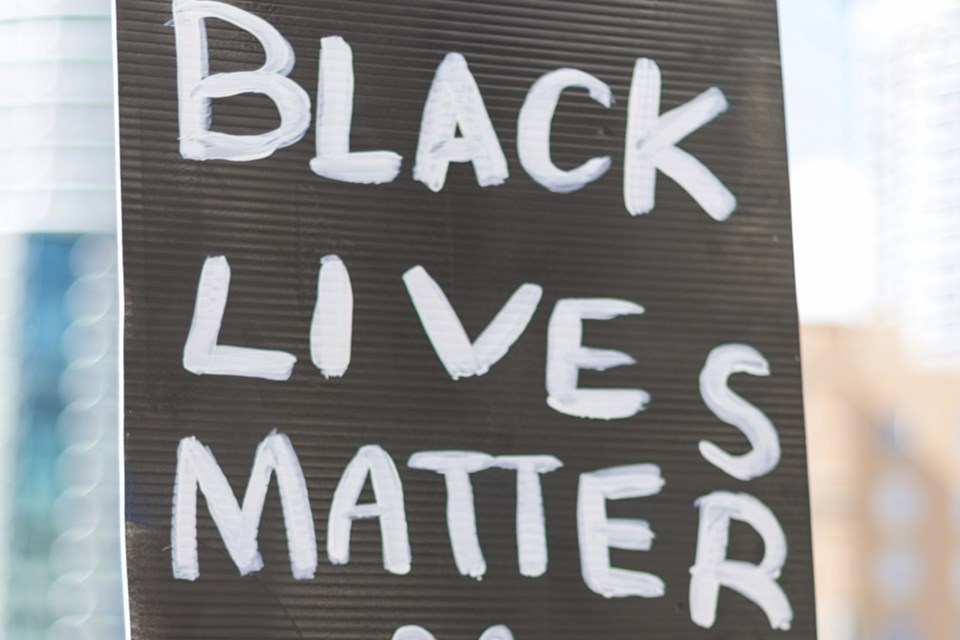WATERLOO — Many Black, Indigenous and People of Colour have shared their experiences of racism, but outside of their own communities, there tends to be more hesitation to tell those stories.
It comes down to a worry that their experience will either invite more harassment, dismissed altogether, or the severity of the act gets played down.
Ciann Wilson is a Wilfrid Laurier University Assistant Professor and member of the African Caribbean and Black Network, and she's seen much of this first hand.
"And I think it's done because it makes the status quo feel comfortable and saying, that's an isolated event, or that's an individual event, or maybe that has something to do with your personality. It's very easy to dismiss it as such," she said.
Earlier in September, Wilson had shared a story on Twitter of one example of racism she experienced. For context, her car had been rummaged through in the middle of the night, despite an automatic lock that would have left only a two-minute timeframe to do so.
She's led to believe that the incident may have been a targeted one, given her status as a vocal Black activist and community leader who frequently calls on Waterloo Region to defund the police.
570 NEWS picked up the story and spoke with Wilson about it. It was later picked up by CBC NEWS. In the following days, she was met with harassment through Twitter and emails accusing her of making the story up, or of being paranoid, usually with insults peppered throughout the messages.
Made no better after the story was further shared by Jonathan Kay, an editor for the Quillete, who dismissed the CBC story and attempted to psychoanalyze Wilson as a conspiracy theorist. Wilson says she ended up receiving all sorts of harassing emails from across Canada, and some coming from the United States.
While we have no way of knowing what exactly happened that night with her car, this is only one story. Others had chimed in on the original tweet, sharing their own experiences with racism, ranging from police surveillance, strangers loitering around their homes, mysterious phone calls and in one instance: bags of urine were tossed into a backyard.
Meanwhile, in recent weeks Waterloo Region has seen a number of hate-related stories make headlines, the Spurline Trail in has seen hate-graffiti written on it, and a doll covered in racist and sexist messages was hung over a bridge.
The Indigenous Land Back Camp reported dealing with racism on an almost daily basis, and on a few occasions, having to deal with Proud Boys harassing them. Wilson can also attest to the odd drone flying over the camp and surveilling them for unknown reasons. The camp has recently relocated to Waterloo Park to help cut down on the abuse.
"They want mounting bodies of evidence to prove racism, but to counter, when they want to deny racism, all they require is their opinions to deny it. 'I don't believe racism exists or systemic racism is a thing, therefore it does not exist, despite what all these racialized folks are saying," Wilson said. At this point, it's almost expected that any story comes with a courtroom ready amount of proof.
All these incidents are just the ones we are aware of. Some Black residents have said they don't even feel comfortable reporting to Waterloo Regional Police (WRPS) out of the belief it will just get dismissed, or cause more issues down the line.
Going a step further, some of those stories involve police. Recently, the police service presented a report to the board for the first half of 2020 around use-of-force. This was the first time WRPS had collected data on the perceived race of the subject, and it suggested officers used force more often against Black residents. Despite only representing 3 per cent of the region, 16 per cent of subjects in the report were Black.
Police Chief Bryan Larkin defended the service against early media reports, noting that they could not draw conclusions from such a limited data set. Another factor to keep in mind is how unusual this year has been given the pandemic, making the data somewhat an outlier. Larkin also mentioned that many of those subjects could be tied to singular incidents, so the decision to use force was not nearly as rampant as early media reports were to be believed.
That means, however, Wilson and other activists could be waiting five or even ten years before they can conclusively say what they've been saying for years within the Black community.
"I think that it's disheartening that they would explain away what's happening, which is another form of denialism," she said.
All of this despite an earlier report this year that found Black people were three times more likely to be the subjects of Regional Police intelligence notes. A practice that Wilson calls "modern-day carding," noting their similarities and how previous reports had found Black residents were carded over four times as much. Something that the Black community were aware of, but never had the data to prove it until then.
None of this is new for Wilson, but many conversations she's had lately have been more focused on how to bridge that gap and move forward.
"Where does that leave us now, right? Where racialized folks are saying one thing. They're saying they're having these experiences, and then non-racialized folks just sort of put their hands up in the air."
At this time, the City of Kitchener has decided to move forward with establishing an anti-racism team that will hopefully address this systematic racism. The City of Waterloo is expected to follow up with their own sometime in early 2021.
